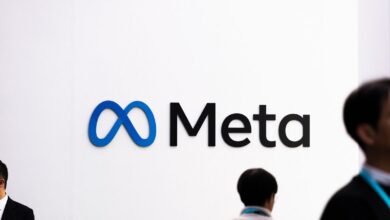Voices in the Void: The Day Meta Stood Still

The recent global outage affecting Meta-owned platforms, including Facebook and Instagram, had a significant impact, with reports indicating that hundreds of thousands of users globally experienced disruptions. The technical issue that led to this widespread outage began around 10 a.m. ET (March 5, 2024), leaving many unable to access their accounts or experiencing difficulties in logging in.
According to Reuters, at the height of the disruption, Downdetector.com, a website that tracks outages through various sources including user reports, recorded over 550,000 reports for Facebook and about 92,000 for Instagram. This outage not only affected the general user base but also had implications for Meta’s internal operations, with several employees reporting on the anonymous messaging app Blind that they were unable to access internal work systems.
The White House National Security Council was monitoring the situation, although there were no immediate indications of malicious cyber activity linked to the outage. Meta addressed the issue, stating that it was caused by a technical problem which was subsequently resolved, ensuring the restoration of services for those impacted. Despite this, the outage stirred discussions on social media platforms about the reliability of Meta’s services and the broader implications for digital communication and business operations relying on these platforms.

User Reactions to Meta’s Momentary Disconnect
During the outage, users turned to platforms like Downdetector to report their inability to access services, highlighting the outage’s broad impact. The swift resolution by Meta suggests a responsiveness to maintaining uptime and functionality for its vast user base. However, incidents like this raise questions about reliability and the potential consequences for users, particularly when two-factor authentication services are affected, which could exacerbate access issues.
The repercussions of such outages are multifaceted, affecting everything from personal communication to business advertising operations. For businesses and creators relying on Meta’s platforms for engagement and revenue, outages can disrupt campaigns and communication with followers. The incident underscores the importance of having contingency plans for digital marketing strategies.
Despite the brief nature of this outage, it prompts reflection among users about their reliance on Meta’s platforms. Trust in digital platforms is built on consistency and reliability. Incidents like this could lead some users to reconsider their platform dependence, especially for critical communications or business operations. However, Meta’s quick action to resolve the issue and restore services likely mitigates long-term trust concerns, provided such outages remain infrequent.
For users and businesses alike, diversifying digital communication and marketing strategies across multiple platforms may offer a safeguard against future disruptions. As digital platforms continue to play a central role in our daily lives and economies, the resilience of these systems against outages is a growing priority.
To stay informed about the status and any outages of Meta’s business products, we recommend referring to the official Meta status page: https://metastatus.com/





